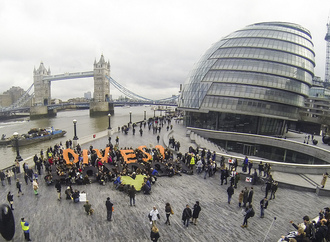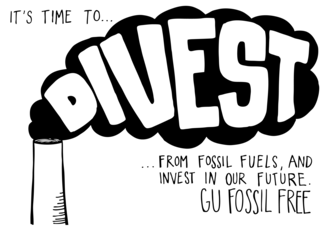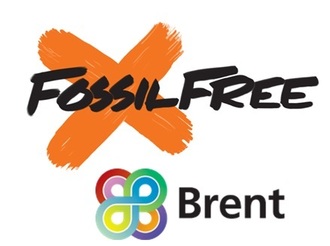Fossil Free UK - Local Government
Find your local campaign
Your Location
Campaigns (52)
-
Fort Road NewhavenDivest East Sussex Pension Fund from Fossil FuelsOur local authority has a responsibility not to invest local people's funds in outdated, polluting industries, such as fossil fuels (oil, coal and gas), that are damaging the balance of our climate and threatening our way of life. Already, we are seeing a greater frequency of extreme weather events, such as the floods of 2013/14 – the wettest winter in England and Wales since 1776 - which caused severe flooding in East Sussex and exposed our coast to very high storm surges from the sea. Investments in fossil fuels are also financially risky. Global temperature targets agreed by world leaders can only be met if most of the existing fossil fuel reserves remain unburned and we quickly move to cleaner technology. This means that investments in fossil fuel companies could soon become ‘stranded assets’. Indeed, the Governor of the Bank of England, Mark Carney, has warned that investors face 'potentially huge' losses from climate change action that could make vast reserves of oil, coal and gas 'literally unburnable' For reasons of both public responsibility and financial prudence, a growing number of major institutions across the world - including the cities of Oslo, Seattle, and Oxford, Glasgow University, and the World Council of Churches - have already decided to move their funds out of fossil fuels. Several UK local authorities, including Haringey Council and the South Yorkshire Pension Fund, are now taking similar steps. The East Sussex Pension Fund has an estimated £172 million of local people's pensions invested in fossil fuels. The Fund is administered by East Sussex County Council. On 13 April 2016, Labour and Conservative Councillors on Hastings Borough Council – a member of the Pension Fund - joined forces to pass a unanimous motion calling on East Sussex County Council to divest the Fund from fossil fuels. It's time for East Sussex County Council to divest local people's pensions from these dirty, damaging and financially risky industries.5,777 of 6,000 SignaturesCreated by Divest East Sussex
-
ManchesterDivest the Greater Manchester Pension FundPensions are about giving us a secure future. But our future security is fundamentally threatened by climate change. Our pension funds should not be investing in oil, gas and coal firms when we know we must leave 80% of all fossil fuels in the ground to avoid catastrophic climate change. We welcome the decision that you made last year to divest from tobacco companies because of their impact on the people of Greater Manchester, and urge you to take a similar approach with fossil fuel companies.5,021 of 6,000 SignaturesCreated by Ellen Gibson
-
Divest Hackney Council from fossil fuelsClimate change is the greatest challenge humanity has encountered. Warming in excess of 2°C will have catastrophic consequences [1]. In order to have a chance of staying below this maximum upper limit of warming 80% of known fossil fuel reserves must not be burnt [2]. The fossil fuel industry currently holds vast carbon reserves which if burnt would result in emissions 5 times larger than what it is deemed to be safe [2]. All available evidence suggests that fossil fuel companies intend to burn the reserves within their control. In addition, companies such as Shell are actively trying to discover new reserves, often in environmentally sensitive regions [3]. If it is wrong to damage the world we live in, then it is wrong to profit from that damage. Responsible investors should no longer be profiting from the destructive activities of these companies. Hackney Council's pension fund currently has £42m invested in fossil fuel companies such as ExxonMobil and Shell [4]. This is at odds with the council's stated commitment to reduce the borough's contribution to climate change and to reduce its emissions by 80% by 2050. Hackney Council exists to serve the people of the borough, and it must therefore acknowledge the significant risks that fossil fuel investments pose to local residents' financial security and future quality of life. Hackney Council should take a moral, political and economic stand by divesting our money from fossil fuel companies and choosing investments less at risk from climate change legislation and more compatible with our values. Divestment from fossil fuels would make a powerful statement that the fossil fuel industry is morally and economically unviable, and that the people of Hackney wish to support an alternative, sustainable energy future. Recent financial studies have shown that divestment from fossil fuels may have a small positive effect on investment portfolios in the short term [5]. Moreover, in the long term these fossil fuel investments will become increasingly risky as the cost of extraction increases and international treaties restrict the use of fossil fuels [2]. Not only does it make moral sense not to invest in the destruction of our planet, it also makes financial sense. It is illogical to allow pension funds to endanger those whose futures they seek to protect. By divesting from fossil fuels, Hackney Council will join public institutions such as the British Medical Association, Glasgow University, Stanford University, Oxford City Council, Bristol City Council, Oslo, amongst many others, in leading by example to help create a sustainable future for the citizens of Hackney and beyond [6]. References [1]http://bit.ly/1wqelqp [2]http://bit.ly/1s9QgyC [3]http://bit.ly/1r2Y2Qb [4]http://bit.ly/1DUM1l5 [5]http://bit.ly/13D9fwr [6]http://bit.ly/12xCgZg2,508 of 3,000 SignaturesCreated by David Clarke
-
LondonDivest the London Pension Fund from Fossil FuelsSadiq Khan, the Mayor of London, supports divestment! http://www.sadiq.london/a_greener_cleaner_london Climate change is the greatest challenge humanity has encountered. Warming in excess of 1.5°C will have catastrophic consequences [1]. In order to have a chance of staying below this temperature rise, 80% of known fossil fuel reserves must not be burnt [2]. The fossil fuel industry currently holds vast carbon reserves which if burnt would result in emissions 5 times larger than what it is deemed to be safe [2]. All available evidence suggests that fossil fuel companies intend to burn the reserves within their control. In addition, companies such as Shell are actively trying to discover new reserves, often in environmentally sensitive regions [3]. If it is wrong to damage the world we live in, then it is wrong to profit from that damage. Responsible investors should no longer be profiting from the destructive activities of these companies. The London Pension Fund Authority (LPFA) manages the pensions of City Hall employees (including the Mayor of London and the London Assembly) as well as many other local authorities [4]. It manages nearly £5 billion worth of assets, millions of which are direct investments in fossil fuel companies including BHP Billiton, Rio Tinto and Shell [5]. Indirect investments total £54.6 million. These fossil fuel investments are becoming increasingly risky as the cost of extraction increases and international treaties restrict the use of fossil fuels [2]. Not only does it make moral sense not to invest in the destruction of our planet, it also makes financial sense. By divesting from fossil fuels, City Hall will join public institutions such as the British Medical Association, Glasgow University and Oxford City Council, amongst many others, in leading by example to help create a sustainable future for the citizens of London and beyond. So we ask: 1. The London Pensions Fund Authority (LPFA) to: - Immediately freeze any new investment in fossil fuel companies, including those made by externally managed and pooled funds. - Offer a fossil free pension option to employees - Divest from the top 200 companies with the largest known carbon reserves (oil, gas and coal), and shift these funds to lower risk, ethical investments within 5 years 2. The Mayor and the London Assembly must be transparent about their relationship with the fossil fuel industry: - Publish full details of their financial and other ties to the fossil fuel industry - Not accept sponsorship and advertising from fossil fuel companies. - Declare their divestment from the fossil fuel industry in order to encourage other pension funds, institutions and individuals to do the same. References [1]http://bit.ly/1Cp61vN [2]http://bit.ly/1mLPo58 [3]http://bit.ly/1r2Y2Qb [4]http://www.lpfa.org.uk/Who-we-are.aspx [5]http://bit.ly/1z8u53U2,281 of 3,000 SignaturesCreated by Divest London
-
Divest West Yorkshire Pension Fund from Fossil Fuel InvestmentsOver 5% of WYPF's investments are in fossil fuel companies, including £207 million invested in BP and £171 million invested in Royal Dutch Shell. [1] Climate change is the greatest challenge humanity has encountered. Warming in excess of 2°C will have catastrophic consequences. In order to have a chance of staying below this maximum upper limit of warming 80% of known fossil fuel reserves must not be burnt. Recent research, instigated by the Carbon Tracker foundation, asserts that there are five times more fossil-fuel reserves than can be burnt if internationally agreed carbon emissions targets are to be met. The fossil fuel industry currently holds vast carbon reserves which if burnt would result in emissions 5 times larger than what it is deemed to be safe. All available evidence suggests that fossil fuel companies intend to burn the reserves within their control. In addition, companies such as Shell are actively trying to discover new reserves, often in environmentally sensitive regions. Fossil fuel equities also pose significant financial risks. As governments control carbon emissions to meet these targets a large proportion of fossil fuel reserves which companies expect to extract will become stranded assets: a “carbon bubble”. Funds which are exposed to fossil fuel equities when this bubble bursts can expect to suffer considerable losses. The Governor of the Bank of England, Mark Carney has recently expressed concerns over climate risk, stating that the “vast majority of reserves are unburnable” if global temperature rises are to be limited to below 2C.[2] [1} WYPF Valuation March 2014 [2] http://www.theguardian.com/environment/2014/oct/13/mark-carney-fossil-fuel-reserves-burned-carbon-bubble1,804 of 2,000 SignaturesCreated by Chayley Collis
-
Divest Brent Council from Fossil FuelsWe believe divestment from fossil fuels to be not only ethically and environmentally correct, but also financially prudent. Climate change is the greatest challenge humanity has encountered. The 20 hottest years on record have all occurred since 1981 and 2016 was the hottest ever [1]. Higher average temperatures are directly linked to extreme weather events such as heat waves, droughts, floods and storms. Scientists have unanimously concluded that these changes are a consequence of human activity, arising from the burning of fossil fuels [2]. Moreover, this activity has resulted in unprecedented levels of air pollution, now regarded as a major world killer [3]. In a speech at Lloyd’s of London in September 2015, Mark Carney, Governor of the Bank of England said that by the time ‘climate change becomes a defining issue for financial stability, it may already be too late’. Carney warned investors that policies to address climate change ‘would render the vast majority of reserves ‘stranded’ – oil, gas and coal that will be literally unburnable’ [4]. In order to continue developing fossil fuel reserves – particularly in the difficult areas where the remaining reserves are located (including the Arctic, the mouth of the Amazon and tar sands in sensitive areas) the developing companies need investment – divestment is a way of cutting off the funds needed to carry out these damaging activities. It also sends a powerful signal to the companies and others that it is time to move away from fossil fuels towards renewable energy. References: [0] http://tinyurl.com/lmskfgk [1] http://tinyurl.com/y9tkm4sn [2] http://tinyurl.com/3e3zv [3] http://tinyurl.com/pqgdd5q [4] http://tinyurl.com/ycspl5sg1,416 of 2,000 SignaturesCreated by Simon Erskine
-
OxfordDivest Oxfordshire from fossil fuelsOur local authority has a duty to look out for the public good. Fossil fuels are in direct conflict with the public good: investing in them poses a risk both to investors and to the planet. So Oxford City Council and Oxfordshire County Council should take a moral, political and economic stand against them by taking our money away from fossil fuel companies and putting it into investments that are less at risk from climate change legislation and more compatible with our values. Divestment from fossil fuels would make a powerful statement that the fossil fuel industry is morally and economically unviable, and that the people of Oxfordshire wish to support an alternative, sustainable energy future that will leave the planet in a shape that allows us, our children and grandchildren to live safely on it. Financial research has called into question the valuations of fossil fuel companies due to their reliance on reserves which may become unburnable if carbon legislation comes into effect.1,399 of 2,000 SignaturesCreated by Al Chisholm
-
Divest Somerset County Council Pension Fund from fossil fuelsSomerset - on the front line of climate change. Climate Change has caused, and is predicted to cause, a much greater risk of flooding and extreme weather. After the devastating floods of the Somerset Levels in 2013 Somerset County Council saw the terrible impact of climate change first hand. The Council recognises the potential impacts of climate change yet its pension fund invests £121,505,000 in the very fossil fuel companies that are causing climate change ! Yes, 8.3% of the fund, the 10th highest % in the UK, invested in the problem ! We can't afford to burn 80% of the world’s coal, oil and gas reserves if we want to keep climate change below the 2oC 'tipping point'. As governments begin to regulate more closely after the Paris COP agreement, cheaper renewables and oversupply of crude oil globally will see the value of fossil fuels plummet, reserves will become 'stranded assets' and the share price will drop. This makes investing in fossil fuels increasingly risky for all stakeholders. Financial experts, including the Bank of England, Goldman Sachs, Standard and Poor's and AXA, have warned of the economic risk that climate change policies pose to fossil fuel companies. Somerset County Council needs to be ahead of the curve to safeguard the future pensions of all its shareholders. Somerset County Council recognises that it must do whatever it can to tackle climate change and it has a responsibility to divest from an industry that jeopardises the future of our planet. Yet the short term financial gain that the Pension Fund Committee hopes to achieve comes at the risk of financial loss and a cost to people and planet. We hope Somerset County County Council pension trustees are aware of September’s UNEP Finance Initiative Report, Fiduciary Duty in the 21st Century – which concludes that: "Failing to consider long-term investment value drivers, which include environmental, social and governance issues, in investment practice is a failure of fiduciary duty.” Instead of fossil fuel investment, SCC Pension Fund Committee should invest in solutions to climate change, investments that protect pensions and planet, joining The British Medical Association, Bristol City Council and Oxford City Council who have all recently agreed to make the commitment to no direct investment in the fossil fuel industry. Globally Somerset County Council would join over 400 institutions and 2000 individuals with an asset base of $2.6 trillion who are already divesting across the world. Time is running out to stop runaway climate change, (2) it make no moral or economic sense to invest in fossil fuels. The time to change was 30 years ago but massive divestment now is a key part in getting to zero emissions by 2030 and having a chance. Please sign the petition and encourage others to do so. (1) http://math.350.org/ 350.org has revealed how much every UK council invests in fossil fuels. Petition from Cllr Shane Collins, Leader of the Green Group on Mendip Council, East Mendip Green Party, South Somerset Green Party. (2) Kevin Anderson https://www.science.su.se/english/about-us/calendar/the-gordon-goodman-memorial-lecture-2017-kevin-anderson-1.3414761,145 of 2,000 SignaturesCreated by Cllr Shane Collins

-
Divest Tower HamletsTower Hamlets Council currently has an estimated £91,764,000 invested in fossil fuel companies. This represents 8.76% of their fund. Ethically, environmentally and economically, there is no justification for such holdings. These investments directly undermine Tower Hamlets' own commitment to 60% reduction in carbon emissions by 2020 [2] as they are directly fueling ever riskier, costlier forms of extraction, which no longer represent the relatively bankable return they have been historically as the fossil fuel energy market grows ever more volatile. Climate change is the greatest crisis humanity has ever faced. The 20 hottest years on record have all occurred since 1981 and 2014 was the hottest ever [3] with 2015 on course to take that unenviable title [4]. Higher average temperatures are directly linked to extreme weather events such as intensified heatwaves; longer more arid droughts; wilder forest fires; stronger, more frequent storms and the resultant flooding; and glacier melt has increased drastically, which not only means rising sea-levels but more of the suns rays being absorbed rather than reflected back, causing a further increase in temperatures. Climate change does not just manifest itself in these ever worsening weather patterns. A recent study [5] attributed the record 2007 - 2010 drought in Syria as a reason for farmers abandoning their land for the city, where their presence has been a major factor in the social unrest that led to the war that has ravaged the country ever since [6]. We now see this being played out in the form of the humanitarian and political crises with which Europe is now struggling to cope. Such events are only going to increase as our shared world becomes hotter and drier. National borders are meaningless in the face of hostile weather. Moreover, worsening levels of air pollution are now regarded as a major world killer [7]. In Tower Hamlets an estimated 138 people a year die as a result of air pollution [8]. At the core of all these problems is the burning of fossil fuels. Scientists have unanimously concluded that these changes are a consequence of human activity, arising from the burning of fossil fuels [9]. The fossil fuel industry have taken a threefold approach to this. Firstly, they have spent significant amounts of money to create a body of disruptive disinformation campaigns that undermine climate science in the minds of the general public [10]. Secondly, they have created a lobbying juggernaut to flatten any political efforts to limit global warming [11]. Thirdly, they have expanded their business practice to focus on ever riskier, costlier and ultimately more disastrous extraction methods such as fracking and deep-water drilling; the latter having led to the largest marine oil spill in history [12]. If it is wrong to continue to wreck the Earth’s climate, then it follows that it is wrong to profit from that wreckage. There are also increasing indications that the profitability of the fossil fuel industry will decrease significantly in coming years. If action is taken to limit global warming and a large degree of carbon reserves are left in the ground, shares in fossil fuel companies will drop significantly in value [13]. As such, pension funds currently investing in fossil fuels risk exposure to this 'carbon bubble', while there is already evidence that fossil fuel-free portfolios are capable of out-performing those including fossil fuel investments [14]. For in depth analyses of these and related risks, see: http://gofossilfree.org/frequently-asked-questions/ http://www.carbontracker.org/ http://www.theguardian.com/environment/fossil-fuel-divestment 'Do The Math' documentary: https://youtu.be/KuCGVwJIRd0 References [1] http://fossilfreeindexes.com/research/the-carbon-underground/ [2] http://www.towerhamlets.gov.uk/lgnl/environment_and_planning/sustainability/carbon_reduction.aspx [3] http://www.ncdc.noaa.gov/sotc/summary-info/global/201412 [4] http://www.weather.com/news/climate/news/earth-warmest-january-may-2015 [5] http://www.pnas.org/content/112/11/3241 [6] http://news.nationalgeographic.com/news/2015/03/150302-syria-war-climate-change-drought/ [7] http://www.who.int/mediacentre/news/releases/2014/air-pollution/en/ [8] http://www.itv.com/news/london/2015-07-15/londons-toxic-air-how-is-your-london-borough-affected/ [9] http://www.ipcc.ch/pdf/assessment-report/ar4/syr/ar4_syr_spm.pdf [10] http://www.fossilfreemit.org/wp-content/uploads/2014/08/FossilFreeMIT-Lobbying-Disinformation.pdf [11] http://www.theguardian.com/environment/2015/mar/25/fossil-fuel-firms-are-still-bankrolling-climate-denial-lobby-groups [12] http://www.britannica.com/event/Deepwater-Horizon-oil-spill-of-2010 [13] http://www.carbontracker.org/wp-content/uploads/2014/09/Unburnable-Carbon-Full-rev2-1.pdf [14] https://www.msci.com/resources/factsheets/index_fact_sheet/msci-acwi-ex-fossil-fuels-index-gbp-gross.pdf1,144 of 2,000 SignaturesCreated by Patrick McFadden
-
Devon County Council - Divest from Fossil FuelsPensions are about giving us a secure future. But our future security is fundamentally threatened by climate change. Our pension funds should not be invested in oil, gas and coal companies when we know we must leave 80% of all fossil fuels in the ground to avoid catastrophic climate change. Our local authorities have a duty to look after the public good. Fossil fuels are in direct conflict with the public good: investing in them poses a risk both to pension members and to the planet. So Devon County Council should take a moral, political and economic stand against them by taking our money away from fossil fuel companies and putting it into investments that are less at risk from climate change legislation. Divestment from fossil fuels would make a powerful statement that the fossil fuel industry is morally and economically unviable, and that the people of Devon wish to support an alternative, sustainable energy future that will leave the planet in a shape that allows us, our children and grandchildren to live safely on it. .......................................................................................................................................................... Template letter (please adapt and use your own words as much as possible, talking about why this issue is important to you): Dear Councillor In 2019, Devon County Council ranked 14th among UK local authorities for the amount of its pension fund invested in fossil fuels. The Devon Pension Fund had £157 million invested through passive portfolios, with the two main companies being Shell and BP. The core business models of Shell and BP are based on the extraction of fossil fuels with absolutely no prospect of change within the timescales required by the Paris Agreement. Both these companies plan to continue exploration for years to come and are opening new oil wells in UK waters. Brunel Partnership who manage the fund have made a commitment to net zero by 2050 and to reduce the fossil fuel investments of the Devon Pension Fund by a minimum of 7% a year. Such incremental change would have been possible had we begun thirty years ago, but the International Energy Agency (IEA) have concluded that exploitation and development of new oil and gas fields must stop this year and no new coal-fired power stations can be built if the world is to stay within safe limits of global heating. Cllr Bloxham has defended the position of the DCC Pensions and Investment Committee saying that “to achieve real emissions reductions it is vital we engage with the companies we are invested in, to hold them to take responsibility for their products”. Both Shell and BP and many of the others indirectly funded by the DCC Pension Fund have spent decades, and continue today, to spend millions of pounds a year funding lobbying groups to suppress the science, spread misinformation and confusion which has resulted in widespread climate denial and inaction. The best way for DCC to influence these companies is to join the growing number of local authorities and organisations, such as the Methodist Church and many Universities, who have removed their investments and placed them in alternative funds. I therefore demand that: 1) DCC fully divest its pension fund from all fossil fuel investments in the next 12 months 2) DCC informs all pension holders in the Local Government Pension Scheme of the current fossil fuel investments and produces a roadmap for divestment with clear milestones 3) DCC works with the relevant agencies to develop and fund a low carbon investment programme for Devon The safety and security of the people you represent depend on strong action on the climate crisis. Divest Now!1,116 of 2,000 SignaturesCreated by Maurice Spurway



.jpg)






